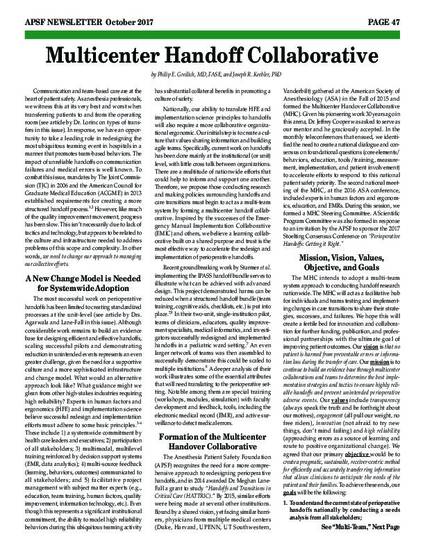
Communication and team-based care are at the heart of patient safety. As anesthesia professionals, we witness this at its very best and worst when transferring patients to and from the operating room (see article by Dr. Lorinc on types of transfers in this issue). In response, we have an opportunity to take a leading role in redesigning the most ubiquitous teaming event in hospitals in a manner that promotes team-based behaviors. The impact of unreliable handoffs on communication failures and medical errors is well known. To combat this issue, mandates by The Joint Commission (TJC) in 2006 and the American Council for Graduate Medical Education (ACGME) in 2013 established requirements for creating a more structured handoff process. However, like much of the quality improvement movement, progress has been slow. This isn’t necessarily due to lack of tactics and technology, but appears to be related to the culture and infrastructure needed to address problems of this scope and complexity. In other words, we need to change our approach to managing our collective efforts.
Available at: http://works.bepress.com/joseph_r_keebler/117/
